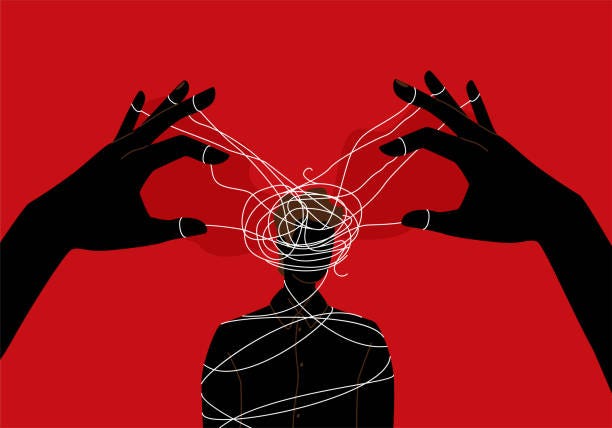Book Appointment Now
7 Things That May Happen When You Confront A Narcissist.

Have you found yourself contemplating the idea of confronting a narcissist? The narcissist could be your partner, your friend, or your colleague. Perhaps you’ve read a few articles online, and you now understand their common traits. You now recognize their manipulative ways, and you are so certain that they don’t need a diagnosis, as their behaviour and cunning nature are so clear.
You can’t wait to call them out or confront them. You may be thinking to yourself that perhaps if you confront them, they will change or stop being hurtful to you, or it will give you a bit of breathing space from their constant deceit. You may have good intentions in doing this; you want the world to see the truth or you want them to ‘understand’ their behaviours. You want your friends, your family, or your neighbours to see who you’re dealing with.
You’re so eager to meet them and spew on their face that they are a narcissist or a real narcissist or that their behaviour is manipulative. You believe it is for the better to do it; after all, what is ‘wrong’ with confronting people who put on a mask? So, should you really do it? Should you call out the narcissist for their abusive behaviour?
Before you make that move, let’s first understand the ramifications or what may happen if you confront them. Actually, the rule of thumb is always to prioritize your own safety at all times; it’s better to be safe than confront them.
So, what happens when you call a narcissist out?
When confronting a narcissist, things may not unfold as you expect, and the situation could potentially worsen for you. They will likely switch to a defensive and attacking mode to protect their fragile ego. After all, the ego or the status quo doesn’t enjoy being challenged and will go to extreme lengths to defend itself. Their response will vary depending on the individual you’re dealing with, but below are some of the behaviours they may exhibit: –
1. Projection — Calling You the Narcissist as Well
When confronting a narcissist about their behavior, a common response is projection, where they may accuse you of being the narcissist instead. They might cite instances where you’ve made mistakes or acted in ways that they perceive as selfish or manipulative. As humans, we’re all prone to errors, and the narcissist’s accusations might lead you to doubt yourself and wonder if you truly exhibit narcissistic traits. This manipulation tactic can be particularly insidious, as it plays on our natural inclination to self-reflect and question our own behavior. Thus, confronting a narcissist can sometimes lead to a distorted perception of oneself, further entrenching the power dynamic in the narcissist’s favor.
2. Deflection
Another thing which may happen when they are called out is they may typically avoid taking responsibility by shifting the blame elsewhere, thus sidestepping any obligation to address or change their actions. Owning up to their behavior would require them to acknowledge their flaws and make efforts to improve, which contradicts their desire to maintain a flawless image. They may deflect accountability with statements like “you made me do it” or attribute their actions to external factors such as depression. By disavowing responsibility, they absolve themselves of guilt and preserve their self-image as faultless, perpetuating a cycle of denial and avoidance of going inwards and working on their stuff.
3. Gaslighting
When confronted with accusations of abuse, narcissists often deny any wrongdoing, even in the face of compelling evidence. They may employ gaslighting tactics, manipulating your perception of reality and inducing self-doubt. By invalidating your experiences and emotions, they aim to maintain control and preserve their self-image as faultless individuals. This gaslighting behavior can leave you questioning your sanity and the validity of your claims. You may even start thinking that you’re hearing or seeing your own things or you’ve simply lost your awareness.

4. Silent Treatment & Ghosting
When a narcissist, has been totally cornered and they don’t have anything to say, they may simply go silent on you or even ghost you. Rather than engaging in a confrontation they cannot control, they opt for withdrawing altogether from the interaction. This silent treatment serves multiple purposes: it allows them to avoid accountability, maintain a sense of power and control, and punish you for challenging their behavior. By withholding communication or disappearing entirely, they exert dominance and manipulate the situation to their advantage. This tactic leaves you feeling confused, rejected, and unable to resolve the conflict, reinforcing the narcissist’s position of superiority and leaving you at their mercy.
5. Victim-Playing
When confronted with their harmful behavior, narcissists may often adopt the role of the victim, manipulating the narrative to elicit sympathy and deflect accountability. By casting themselves as the injured party, they shift focus away from their own actions and onto the perceived injustices inflicted upon them by other external circumstances. This tactic serves multiple purposes: it allows them to avoid taking responsibility, manipulates others into feeling sorry for them, and reinforces their self-image as a misunderstood and mistreated individual. They position themselves not as someone who’s supposed to resolve their issues, but as someone who deserves or is entitled to your sympathy.
https://toxicrelationships.medium.com/why-do-narcissists-play-victim-73bf1545b795
6. Apologizing
In rare instances, the narcissist may offer an apology for their behavior. They might fully acknowledge their actions, express remorse, and vow to change, pledging never to revert to their past behavior. This display of remorse and promise of transformation can be incredibly convincing, leading you to consider giving them another chance. However, this often takes you back to the “love bombing” stage of the relationship. During this phase, the narcissist overwhelms you with affection, attention, and promises of change, drawing you back into the relationship with a sense of hope and optimism. Yet, this phase is typically short-lived and serves as a manipulative tactic to regain control and reinforce their hold over you.
7. Aggression
In some cases, the narcissist may often resort to aggression when they perceive a threat to their superiority. They may yell, explode in wild rage, break a few things, or even in extreme cases, resort to physical violence. Your statements are so triggering to their self-image or sense of authority that they may lash out or erupt in rage, even intimidating you to silence those threats to their ego. That’s why it’s always better to prioritize your safety than even think about confronting them.
Should You Confront the Narcissist?
Knowing what they might do if you try to call them out, the best course of action for you would be to distance yourself from them as much as possible. Of course, it’s not a one-size-fits-all situation, and some may react differently but it still won’t yield best outcomes for you. You may have good intentions by trying to confront them, but those intentions will come back to haunt you. It may make things worse for you, as the narcissist doesn’t want to be challenged. The best question to ask yourself is why do you really want to confront them?
https://toxicrelationships.medium.com/why-do-narcissists-play-victim-73bf1545b795
If you deeply reflect on this question, you will realize that you’re reacting to their atrocities or to what they’ve done to you, and you’re not in your right senses. In your right senses, you would really know the best thing to do. When you approach situations from a reactionary perspective, it will mostly lead to not-so-good outcomes because you’re operating from tainted emotions and not from your true self.
That’s why the best thing to do once you figure them out is to prioritize your safety and understand that you’re dealing with someone who won’t see things from your perspective or from a normal perspective. Everything they do is mostly in defense mode. They will not simply say, “Thank you, I will change my behavior.” They will not simply keep quiet and work on themselves.
Even if you think they might change, it’s not your responsibility. You’re your only responsibility, and you’ve got to keep yourself safe and work on the damage that has already been done in your life. You’re angry, frustrated, feeling betrayed, but that’s not you. You’re what’s beyond what’s been done to you, and that’s what healing is all about. Facing what’s there or facing the uncomfortable pain rather than seeking external factors like confronting them. If you feel stuck in your healing journey, simply realize the distractions you’re having or the avoidance strategies your cunning mind employs to keep you stuck in the comfort of familiar pain. Once you realize that, you will stop the narcissist research and only focus on the actual fact that you’re in pain.
Note from the Author
If you’re ready and you’d like my help with healing, finding peace in life and breaking free from these toxic patterns (in less than 2 months) , then you can book a FREE BREAKTHROUGH CALL with me HERE. Happy healing 💙💙. Feel free to share and comment! Use this information with caution, it comes from my own thoughts & bias, experiences and research😊.







